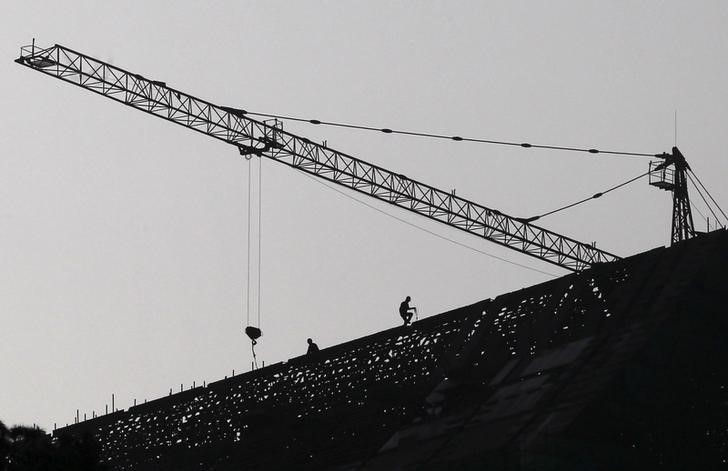By Xiaoyi Shao and Nicholas Heath
BEIJING (Reuters) - Home prices in China rose for a fifth consecutive month in September, suggesting a mild recovery in the housing market that will relieve some pressure on the struggling economy.
The sector, which accounts for 15 percent of GDP, has become a rare bright spot in an economy that is expected to grow at its slowest pace in 25 years this year. But it may be some time before it begins contributing to broader activity again.
Average new home prices inched up 0.3 percent in September from August, according to Reuters calculations based on data released by the National Statistics Bureau (NBS) on Friday. That matched the pace in August.
Month-on-month price gains were recorded in 39 of the 70 cities surveyed, up from 35 in August.
However, while home prices and sales have improved in recent months after a barrage of government support measures, conditions remain weak in smaller cities and a huge overhang of unsold houses is discouraging new investment and construction.
Data on Monday showed that growth in China's property investment in the first nine months of the year slowed to the lowest level since early 2009, while new construction over the same period continued to see a year-on-year drop.
Still, in a sign property investment might be bottoming out, new construction rose 15.3 percent in September from the same period a year ago, the first such growth in nearly a year, Reuters calculations based on official data showed.
Central bank figures also showed that bank lending to the property market increased in the third quarter by 20.9 percent from a year earlier, quickening from 19.4 percent in the second quarter.
MIXED OUTLOOK
Economists at ING said a revival in new home starts could point the way for property to become an economic growth driver again next year, boosting demand for construction materials from cement to steel.
But single-month data, derived from cumulative figures, can be volatile, and economists are divided on the outlook.
Price gains in China's bigger cities may have passed their peak, economists at Nomura said, noting price growth in Tier-1 cities eased to 2.0 percent in September month-on-month from 2.1 percent in August.
Stabilising home prices may only imply that housing demand has returned to more normal levels after being driven higher by earlier policy easing, Nomura said, noting growth in property sales has also been easing from its recent July peak.
"This reinforces our view that property investment growth may turn negative in 2016," they said.
Ma Jun, the chief economist at the People's Bank of China(PBOC), conceded that the weak property investment was the main source of downward pressure weighing on the economy but said he expected investment to improve in coming months.
"Rising home prices in recent months have steadied market sentiment... and improved sales are likely to stabilise the property investment in coming months," Ma told the Financial News on Friday. The paper is published by the central bank.
Major Chinese construction machinery maker Zoomlion Heavy Industry Co <000157.SZ> (HK:1157) said last week it expected to report a loss in the third quarter due to the weakness in the yuan and a supply glut at home.
A breakdown of NBS data also pointed to continued weakness in property markets in smaller cities where the glut of unsold houses is believed to be the highest.

First-tier cities fared better, with Shenzhen being the top performer. Prices in Shenzhen were up 37.6 percent in September from a year earlier, compared with a 31.3 percent rise the previous month.